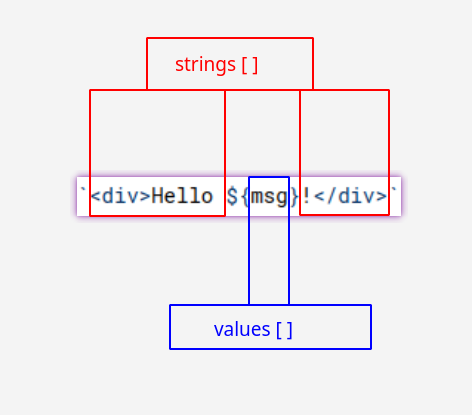In lit/lit-html/lit-element, a standard component is the TemplateResult (usually HTMLTemplateResult), created like:
function renderMe(msg) {
return html`<div>Hello ${msg}!</div>`;
}
and of course the power and efficiency of the library is that subsequent calls will reuse the same <div> Element and only replace the changed fragments.
For testing the renderMe() function above, however, it would be helpful to be able to see the return value as a standard string, like:
assert.equal(RENDER_AS_STRING(renderMe('kimiko')), '<div>Hello kimiko!</div>');
and fix any bugs in the function before testing how it renders into the browser itself.
Is there a function like RENDER_AS_STRING either in lit itself or in a testing library? I have searched and not found one.

